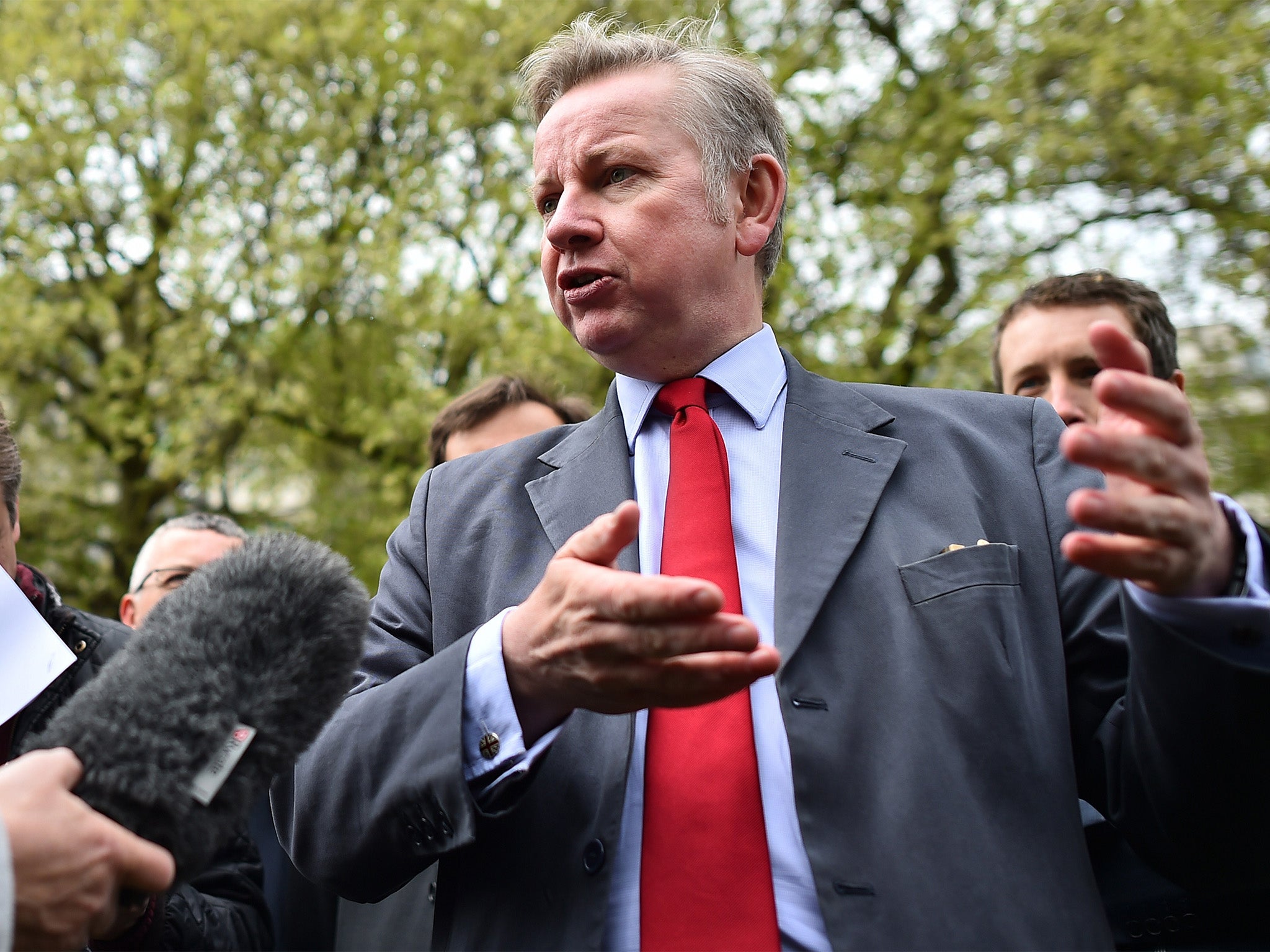Tax on justice: Michael Gove urged to scrap criminal courts charge before Christmas Eve deadline
Justice Secretary bowed to pressure last week to abolish the widely condemned charge on 24 December

Your support helps us to tell the story
From reproductive rights to climate change to Big Tech, The Independent is on the ground when the story is developing. Whether it's investigating the financials of Elon Musk's pro-Trump PAC or producing our latest documentary, 'The A Word', which shines a light on the American women fighting for reproductive rights, we know how important it is to parse out the facts from the messaging.
At such a critical moment in US history, we need reporters on the ground. Your donation allows us to keep sending journalists to speak to both sides of the story.
The Independent is trusted by Americans across the entire political spectrum. And unlike many other quality news outlets, we choose not to lock Americans out of our reporting and analysis with paywalls. We believe quality journalism should be available to everyone, paid for by those who can afford it.
Your support makes all the difference.Michael Gove is facing growing calls to ditch the criminal courts charge immediately rather than make magistrates continue to impose it until Christmas Eve, when the controversial levy will be scrapped. The Justice Secretary bowed to pressure last week, led by The Independent, to abolish the charge which has been widely condemned by the legal profession and has prompted the resignation of dozens of magistrates.
Mr Gove said he accepted the charges, introduced by his predecessor Chris Grayling, had not worked and announced they would be scrapped on 24 December. The date was chosen because of parliamentary practice under which ministers have to give three weeks’ notice of such a move.
The Ministry of Justice has written to courts in England and Wales to remind them that they are obliged to impose the charge on defendants until Christmas Eve and had no authority to waive it.
Mr Gove has said he moved as “expeditiously as possible to suspend the charge”. He said: “The best legal advice available to the department suggested this was the most effective way of relieving magistrates of the obligation to impose it.”
But critics argued that the time period could be waived under the exceptional circumstances of a policy being repudiated by the minister responsible for it.
The legal commentator and barrister Carl Gardner said the Ministry of Justice should have ignored the three-week convention and scrapped the charge on the day of Mr Gove’s announcement. “The charge will be so little lamented that I doubt there’d have been any fuss. For once, more ministerial high-handedness might have been welcome. I don’t mind that the charge’s end is legally messy, but I do wonder why it’s not slightly quicker,” Mr Gardner wrote on his blog Head of Legal.
Andrew Neilson, the director of campaigns at the Howard League for Penal Reform, also called for flexibility. He said: “Given the clear message from the Government as to the fate of the criminal courts charge, we would hope that the courts can find creative ways to avoid handing it down now that it is in its dying days.
“If people do not pay the charge now – and many will wonder why they should as it is only weeks away from abolition – then we also hope that courts can feel free to waive money owed.”
The shadow Justice minister, Andy Slaughter, said: “If Michael Gove explained what he is doing and explained the reasons for doing it, if it is – as he concedes – an unjust, anomalous charge, then it should go now. It’s also putting magistrates in an impossible position where even the Justice Secretary has said this is not an appropriate charge to levy and they are finding they have to levy it. It’s a clear case where everybody would understand why he is taking immediate action. It’s just another mistake they have made in this whole bungling process.”
Andy Cash, a director of Cartwright King solicitors in Derby, said: “If someone pleads guilty on Monday they face £150 tax. If they have the case adjourned or they seek an adjournment until the new year they don’t. How does that work?”